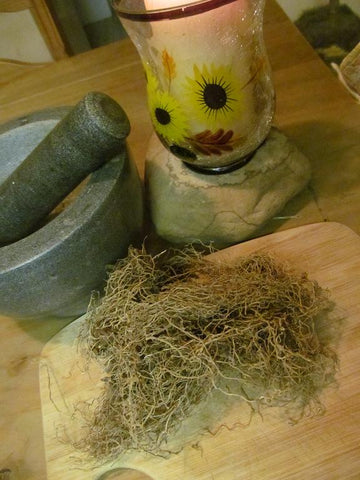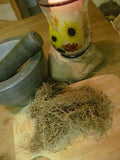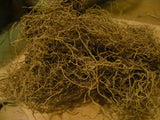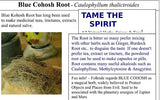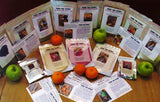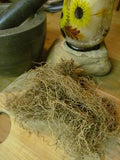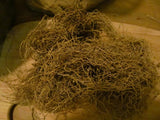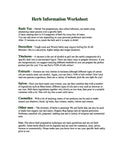Blue Cohosh Root - Wild Harvested in the foothills of the Appalachian Mountains
Blue Cohosh Root,
Caulophyllum thalictroides,
Making Blue Cohosh Tea & Blue Cohosh extract are the most common uses for this amazing herb. Blue Cohosh Root can be made into tinctures and salves as well.
Wild Harvested on the " Tame the Spirit " Farm in the foothills of the Appalachian Mountains. No smog, no pollution and rich, nutrient filled soil provide the perfect environment for harvesting all natural, non GMO, wild herbs.
Packaged in sealed retail foil pouch, always guaranteed fresh or your money back!
Blue Cohosh is also known as Papoose Root, Squawroot, Blueberry Root, Beechdrops, Blue Ginseng and Yellow Ginseng. The Blue Cohosh Plant is Native to the Eastern United States. Found mostly in hardwood forests, Blue Cohosh favors moist valleys in shady locations with rich soil.
The Root of Blue Cohosh is bitter so many prefer mixing with other herbs such as Ginger, Burdock Root etc.. to disguise the taste If one doesn't prefer tea, extract or tincture, the powdered Blue Cohosh root can be used to make capsules or pills.
It's use as an herbal remedy dates back hundreds of years being used by native Americans and passed on to early settlers. Blue Cohosh contains various important alkaloids such as Caulophylline, Methylcytosine, Anagyrine, Baptifoline and Magnoflorine.
Occult, Witchcraft and Magic folklore uses - Associated with protection and safe guards from evil.. Used in various herbal magic spells. Used in love mixtures, mojo bags, amulets, jars and charms. A commonly used organic herb for rituals, ceremonies and magick spells among alternative religious practices.
The information we share on this website is based on research from books, the internet, research papers, and personal experience with native plants. The information contained in this website should not be considered medical advice. These products are not intended to diagnose, treat, cure or prevent any illness or disease. For diagnosis or treatment consult your physician.
As with any food, allergic reactions can also occur with organic herbs. If you are pregnant or breast feeding do not use this herb. Speak with a medical professional if you have any concerns or adverse reactions.

